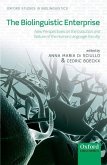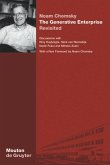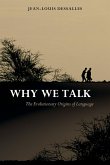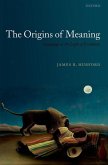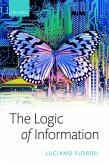This book, by leading scholars, represents some of the main work in progress in biolinguistics. It offers fresh perspectives on language evolution and variation, new developments in theoretical linguistics, and insights on the relations between variation in language and variation in biology. The authors address the Darwinian questions on the origin and evolution of language from a minimalist perspective, and provide elegant solutions to the evolutionary gap between human language
and communication in all other organisms. They consider language variation in the context of current biological approaches to species diversity - the 'evo-devo revolution' - which bring to light deep homologies between organisms. In dispensing with the classical notion of syntactic parameters, the
authors argue that language variation, like biodiversity, is the result of experience and thus not a part of the language faculty in the narrow sense. They also examine the nature of this core language faculty, the primary categories with which it is concerned, the operations it performs, the syntactic constraints it poses on semantic interpretation and the role of phases in bridging the gap between brain and syntax. Written in language accessible to a wide audience, The Biolinguistic
Enterprise will appeal to scholars and students of linguistics, cognitive science, biology, and natural language processing.
Hinweis: Dieser Artikel kann nur an eine deutsche Lieferadresse ausgeliefert werden.
and communication in all other organisms. They consider language variation in the context of current biological approaches to species diversity - the 'evo-devo revolution' - which bring to light deep homologies between organisms. In dispensing with the classical notion of syntactic parameters, the
authors argue that language variation, like biodiversity, is the result of experience and thus not a part of the language faculty in the narrow sense. They also examine the nature of this core language faculty, the primary categories with which it is concerned, the operations it performs, the syntactic constraints it poses on semantic interpretation and the role of phases in bridging the gap between brain and syntax. Written in language accessible to a wide audience, The Biolinguistic
Enterprise will appeal to scholars and students of linguistics, cognitive science, biology, and natural language processing.
Hinweis: Dieser Artikel kann nur an eine deutsche Lieferadresse ausgeliefert werden.


